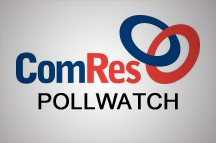Why George Osborne should be careful what he wishes for
Today's announcement that interest rates will remain at 0.5% comes on a bed of coals quickly heating up.
Mark Carney began his tenure as Bank of England Governor by saying that rates would not increase until the unemployment rate fell below 7%. While it was meant to calm the markets by implying an increase was some way off, now that unemployment sits at 7.1% people are instead beginning to wonder when, not if, a rise might happen.
Mortgage Holders
The group most obviously affected would be homeowners with a mortgage. But all the signs are that, far from being prepared for an increase in interest rates, mortgagors are precariously leveraged. Most with a mortgage (57%) say they are worried about a rise, but there is little evidence of this motivating them to make contingency plans. Just a quarter (27%) say that they are saving more money now than they were six months ago so they can afford their mortgage repayments if interests rates go up. Meanwhile, a third (33%) say that they do not even have a good idea of how much a rise in rates would cause the monthly payments on their mortgage to increase by.
If, or rather when, an increase does happen, many mortgagors would no doubt weather the storm: one third say it would have little effect on their finances (35%). But at the other end of the spectrum, an increase will have dramatic effects: fully one-quarter of mortgage holders (26%) say that they would be in serious financial trouble, leaving large numbers of people troubled over whether they would be able to keep up with their monthly payments. Four in ten (39%) say that they would have to “cut back drastically on other areas of spending” to keep up with their mortgage repayments. This would see a widespread realignment of household budgets towards focusing on loan repayments and away from other areas of spending, in turn sucking money out of the wider economy.
Who benefits?
Given all this, it might appear odd as to why reports circled a little while ago that George Osborne was coming around to the idea that an increase in interest rates might be a “sign of success”.
The answer is not only the Government’s ability to welcome back sustained economic growth, but it is also worth noting that a sizeable proportion of people would actually benefit from a rise in rates. In fact, almost the same proportion think it would have a positive impact (30%) as think it would have a negative impact (31%).
.png)
Base: All GB adults (n=2,053)
But those who think it would have a positive impact tend to come from key demographic groups for the Conservatives: most people aged 65+ (53%), including 59% of retirees with a private pension, think it would have a positive effect on their finances. It has been noted in past Pollwatches that this group will be key come 2015 due to their propensity to vote and that they are the only age group more likely to vote Tory than Labour. They also contain many ex-Conservative voters who, for the time being at least, have lent their support to UKIP. A rise on rates could help restore their loyalty.
The politics of interest rates
Bearing this in mind, we can imagine why the Chancellor might think an increase would be beneficial. A well-timed rise, perhaps in March 2015, could for example tie in with the annual clamour in the ISA market at the end of the tax year for more attractive savings rates, leaving older savers feeling especially positive. Coming just two months before the election, it would not yet have a chance to filter through to the rest of the economy or to people renting their properties, many of whom are on 12 month tenancy contracts. And mortgage holders? Well, a third of them say an increase would have little effect on their finances (35%), and those that would have to cut back on spending to keep up with their repayments are less inclined towards the Chancellor anyway (only 23% trust him with the economy, compared to 37% of those who would not have to cut back).
Nevertheless, whatever the temptations, a rise in interest rates would probably do more harm than good to the Conservatives’ election chances. In fact, the threat of higher interest rates under Labour is likely to be one of the key campaign messages for the Conservatives as they seek to keep economic competence one of the principal determinants of voter choice.
The Conservative Party struggles with female voters, and women (55%) are more likely than men (41%) to reject the idea that a rise would have little effect on their finances. The Conservatives want to present themselves on the side of hardworking families, but working people are much more likely to say that a rise in rates would have a negative effect (37%) on their finances than a positive effect (25%). It could pull funding from small businesses at just the same time as they are trying to rail business against a “tax-loving” Labour Party. Just when they seem to have extinguished the heat of Ed Miliband’s successful cost of living agenda, a rise in the cost of housing would simply pour petrol on the fire.
Mr Osborne should be careful what he wishes for, it just might come true.
More information:
To sign up to receive the ComRes Pollwatch via email please visit their website.
To find out more about how ComRes market and opinion research can support your work, please contact:
Jasmine Morgan
020 7871 8655
jasmine.morgan@comres.co.uk














